Politics
Pedro Sanchez, Spain’s PM dissolves the Parliament and calls for National Elections
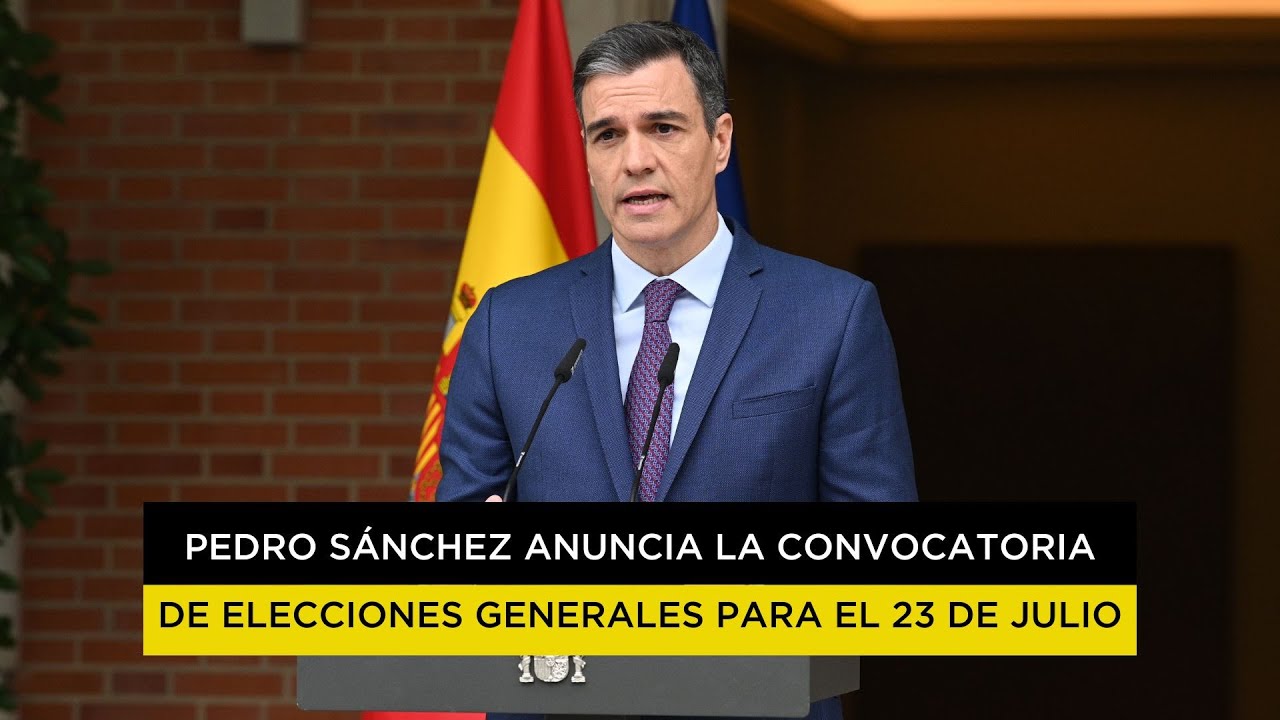
According to EL MUNDO the magnitude of the defeat and loss of socialist territorial authority have forced the government’s president to “assume defeat in the first-person”. The president summons progressives and forces them to decide whether they want to mobilise and prevent a PP Vox government or go to the voting date in large numbers and maintain a socialist national government.
Statement by the President of Spain’s Government calling for new elections.
I will try to be as brief as possible and also very clear.
I just had a meeting in which I informed His Majesty, the King, of my decision to call an emergency Council of Ministers to dissolve the Cortes this afternoon and to proceed with calling general elections. I used the constitutional prerogative that is attributed to the president of the government.
The official call for the election will be published in the Official State Gazette tomorrow, Tuesday. This will ensure that the elections are held on Sunday, 23 July, according to the deadlines set by law.
I made this decision based on the results of yesterday’s elections.
These results will have the first effect of displacing magnificent regional presidents, and socialist mayors with impeccable management. This is despite many of them seeing their support increase yesterday.
The second result will be the administration of many institutions by new majorities formed between the Popular Party and VOX.
Although yesterday’s voting was confined to local and regional issues, the message of the vote goes beyond this.
As President of the Government and Secretary General of Socialist Party I take these results personally. I also believe that it is important to respond to the will and mandate of the people and to submit our democratic mandate.
Spain is about to emerge from a period of crises caused by the rise of Covid-19 and the war in Ukraine. We are on the right track of growth, creating jobs and social cohesion. At this point in the legislative, the Government has moved forward with the major reforms that were committed to in both the investiture speech and the government program, as well as in our agreement with European Commission.
In this geopolitical environment that Europe is currently experiencing, our country will be taking on a very significant responsibility, namely the rotating presidency of the Council of the European Union.
All these reasons make me believe that it is advisable to clarify what the Spanish people want. Clarification of the policies the Government of the Nation will apply and clarification of the political forces who will lead this phase.
There is only one way to answer these questions. This method is democracy, and I believe it is best for Spaniards take the floor to speak up, to speak without delay, in order to determine the political direction of their country.
Thank you so much.
Below you can view the statement in Spanish
Politics
Critical Oversight: ODIHR Prepares for Local Elections in Bosnia and Herzegovina
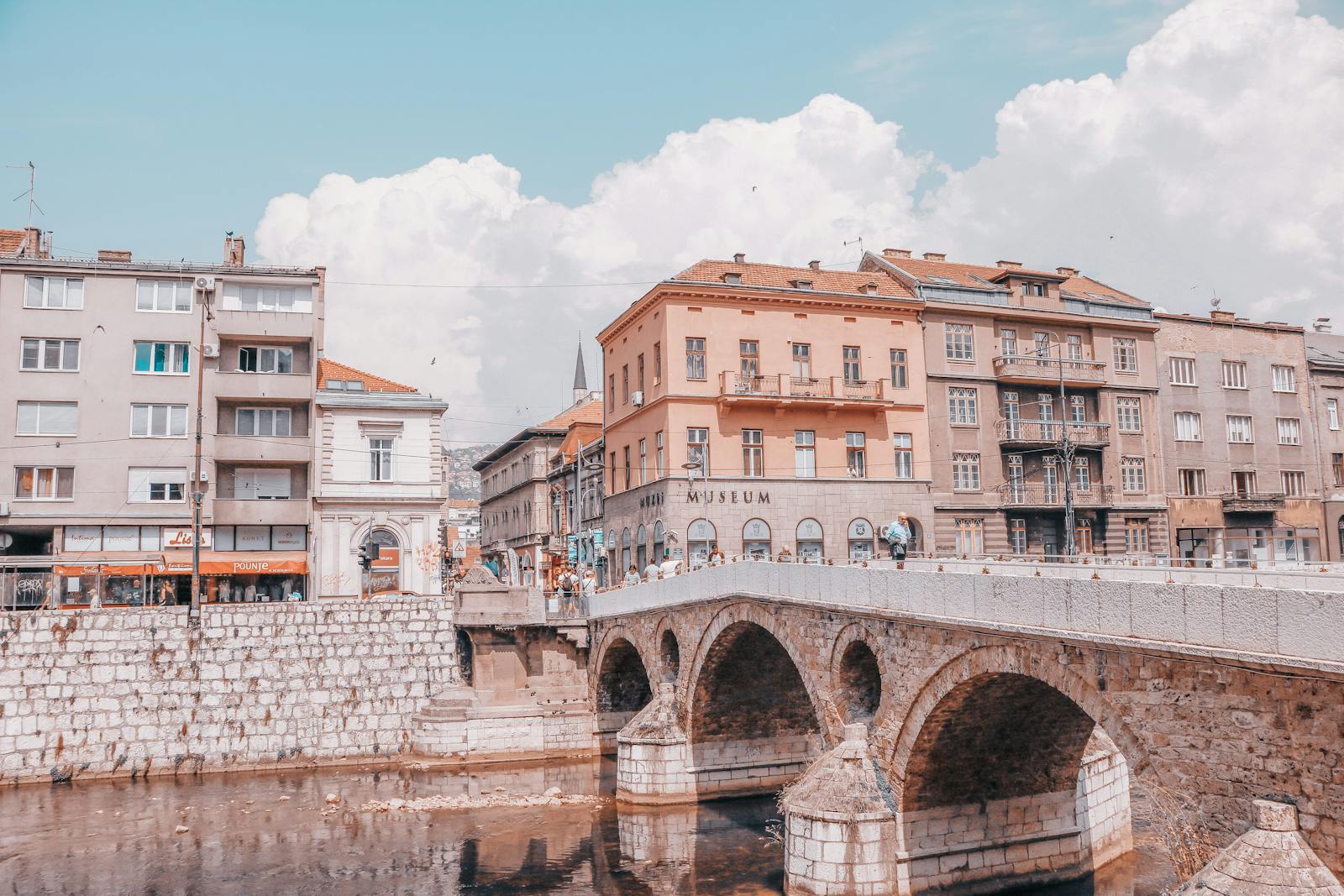
SARAJEVO, 30 August 2024 – In a critical step toward upholding democratic standards, the Organization for Security and Co-operation in Europe (OSCE) Office for Democratic Institutions and Human Rights (ODIHR) has officially opened an election observation mission in Bosnia and Herzegovina for the upcoming local elections scheduled for 6 October 2024. This initiative follows an official invitation from the national authorities and the results of a needs assessment mission conducted in May.
Heading the mission is Corien Jonker, who will lead a core team of 11 international experts based in Sarajevo. In addition, the mission will deploy 20 long-term observers throughout the country starting on 6 September. To bolster the observation efforts further, ODIHR plans to request an additional 300 short-term observers, who are expected to arrive several days prior to election day.
The primary objective of the mission is to assess the elections’ compliance with OSCE commitments, international obligations, and standards for democratic elections, as well as with the national legislation of Bosnia and Herzegovina. Observers will meticulously monitor key aspects of the electoral process, which includes both offline and online campaign activities, the performance of the election administration at all levels, the implementation of election legislation, and the overall respect for fundamental freedoms.
A significant focus will also be placed on evaluating the work of public and private media during the election period and monitoring the resolution of any election disputes that may arise. Additionally, observers will assess the implementation of previous ODIHR recommendations related to electoral processes in the region.
Integral to the observation mission is the engagement with a diverse array of stakeholders. This includes meetings with national authorities, representatives of political parties, civil society organizations, media entities, and members of the international community. Such interactions will provide vital insights into the electoral environment and the challenges faced during the election period.
To keep the public informed, the ODIHR will release an interim report approximately two weeks before the elections, detailing the mission’s observations and activities up until that point. Following the elections, a statement of preliminary findings and conclusions will be presented at a press conference the day after the polling. A comprehensive final report assessing the entire election process, complete with recommendations for future improvements, will be published in the months following the elections.
As Bosnia and Herzegovina approaches these crucial local elections, the ODIHR’s commitment to monitoring and assessing the democratic process underscores the importance of transparency and accountability in fostering a robust electoral environment.
Politics
German MEP Dennis Radtke takes on influential role in the European Parliament
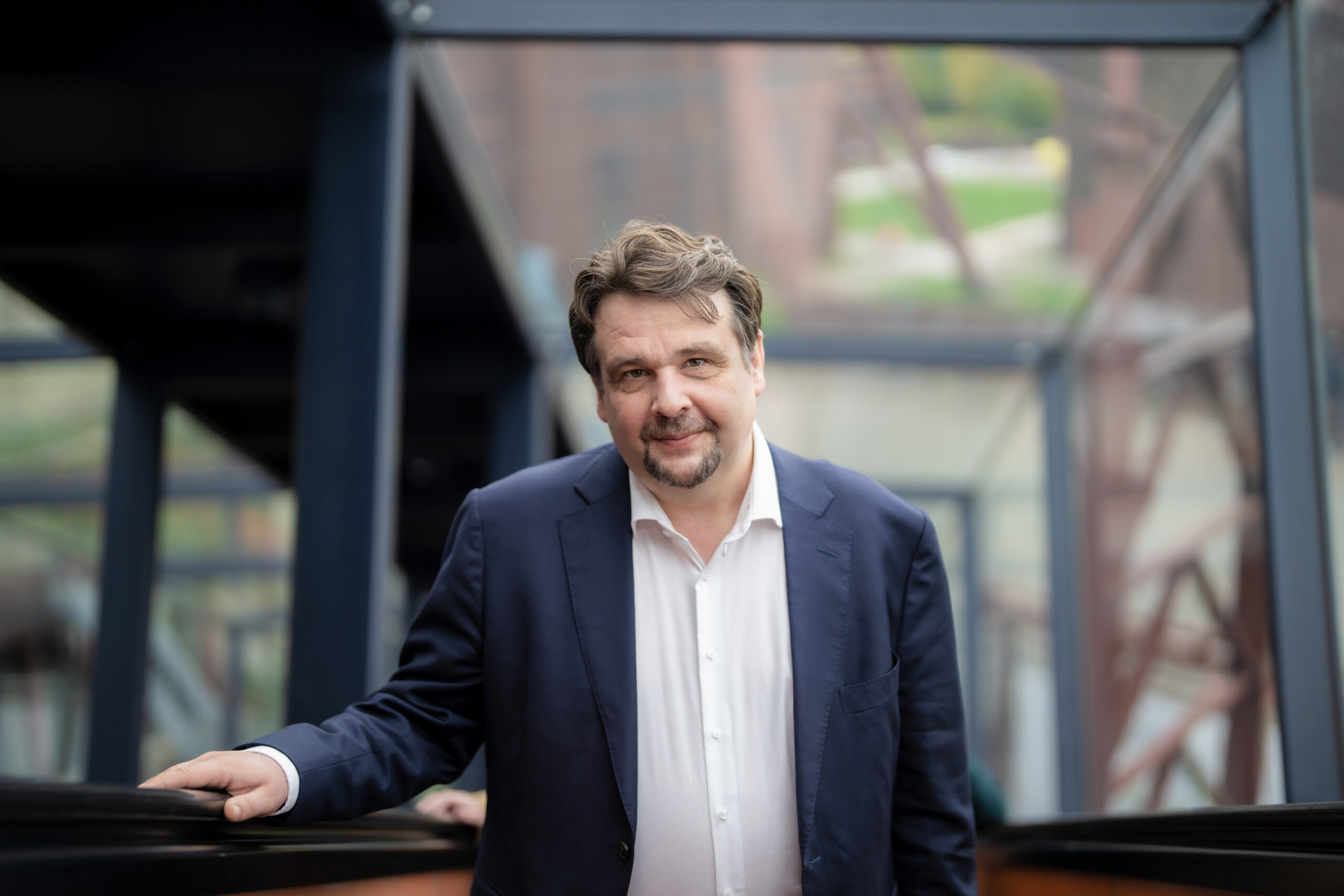
STRASBOURG/BRUSSELS/BERLIN/DÜSSELDORF/BOCHUM. Yesterday, Wednesday (17 July 2024), Dennis Radtke MEP from North Rhine-Westphalia (NRW) in Germany was confirmed as social policy spokesperson for the EPP Group in Strasbourg, where the European Parliament is being constituted this week.
“I am delighted to be able to continue to lead the EPP Group in the European Parliament’s Committee on Employment and Social Affairs (EMPL) and promote social policy issues,” said Dennis Radtke shortly after his election.
He also immediately formulated his clear ambition: “There is still a lot to do on the road to a more social Europe and we as the EPP Group want to play a leading role in this.”
According to the CDU politician, many projects have already been implemented: a European Minimum Wage, strengthening the rights of platform workers, social and climate funds and a European care strategy. “The great trust placed in me by my colleagues in the EPP Group motivates me strongly to continue actively working for a socially just Europe,” continued Radtke.
In his role as so-called coordinator of his political group, Dennis Radtke decides, for example, on the distribution of legislative and non-legislative reports and basically steers the work in the EMPL Committee.
One of Radtke’s next important projects for the new 10th parliamentary term of the European Parliament is to improve the protection of workers. “In its new mandate, the European Labour Authority (ELA) must be given every opportunity to enforce worker protection in the European Union, including across borders,” says the CDU politician.
Dennis Radtke is 45 years old, married and the father of two children. He comes from Wattenscheid (Bochum, Germany) and has been a member of the European Parliament since 2017. Radtke is a member of the Committees on Employment and Social Affairs (EMPL) and on the Environment, Public Health and Food Safety (ENVI).
The German CDU politician is President of the European Union of Christian Democratic Workers (EUCDW), Deputy Federal Chairman and North Rhine-Westphalian State Chairman of the Christian Democratic Workers’ Union (CDA), the CDU’s labour wing. At the CDA national conference on 14 and 15 September 2024 in Weimar (Thuringia), Dennis Radtke will run for the federal chairmanship of the CDA Germany in succession to Minister Karl-Josef Laumann MdL.
Politics
Roberta Metsola re-elected as President of the European Parliament
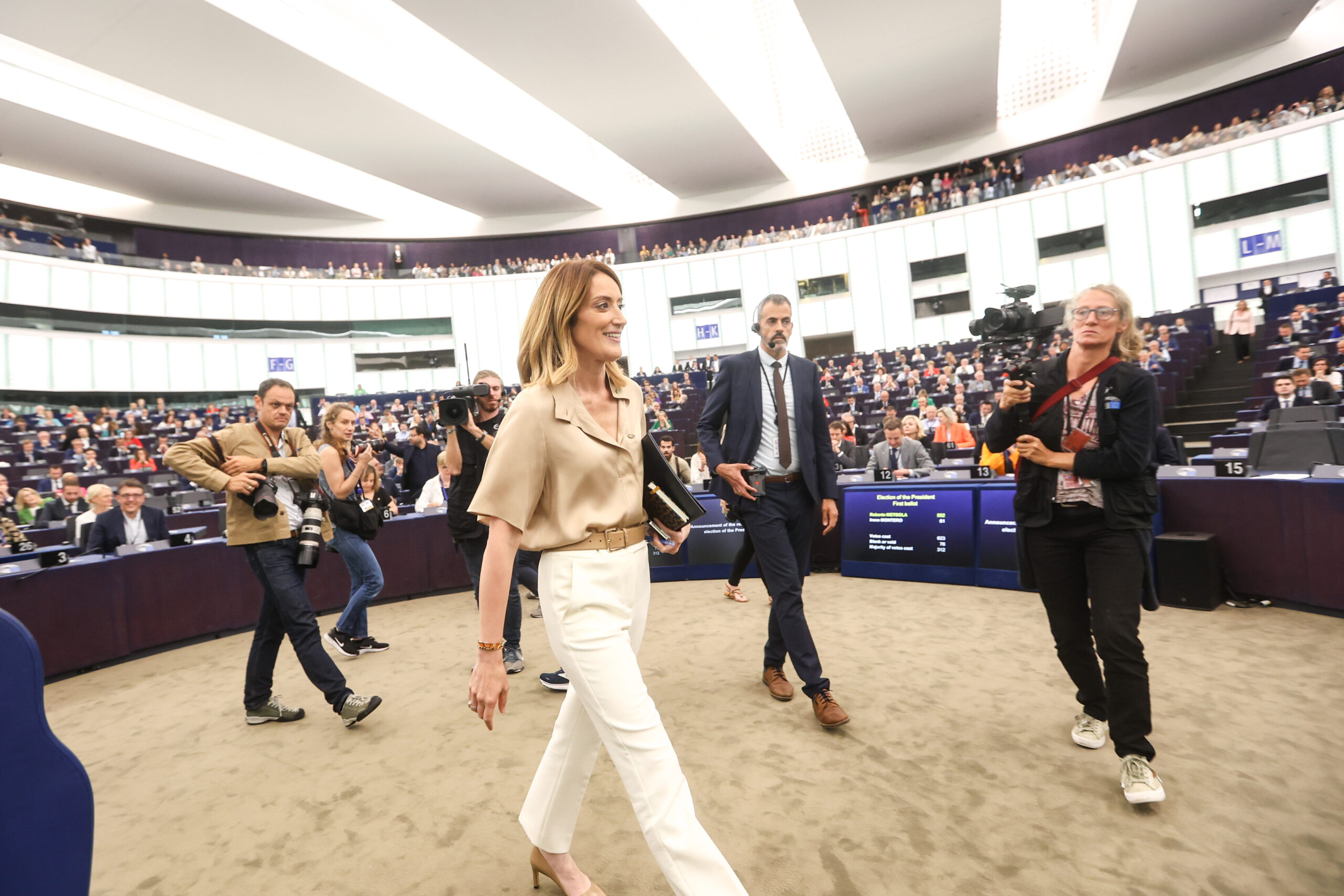
On Tuesday, MEPs re-elected Roberta Metsola (EPP, MT) as President of the European Parliament until 2027, with 562 votes in the first round.
Roberta Metsola won the election in the first round of voting, where she received an absolute majority of 562 votes cast out of 699 by secret paper ballot, among two candidates. She will continue to lead Parliament for the first two and a half years of the 10th legislative term.
Voting results
- Roberta Metsola (EPP, MT) 562
- Irene Montero (The Left, ES) 61
Total votes cast: 699
Blank or invalid votes: 76
Absolute majority needed: 312
Who is Roberta Metsola
Born in Malta in 1979, Roberta Metsola has been an MEP since 2013. She was elected First Vice-President in November 2020, and was Parliament’s acting President after President Sassoli passed away on 11 January 2022. On 18 January 2022, she was elected President for the second half of the 9th legislative term. She is the third female President of the European Parliament, after Simone Veil (1979-1982) and Nicole Fontaine (1999-2002).
Addressing the House after she was elected, President Metsola said: “Together, we must stand up for the politics of hope, for the dream that is Europe. I want people to recapture a sense of belief and enthusiasm for our project. A belief to make our shared space safer, fairer, more just and more equal. A belief that together we are stronger and we are better. A belief that ours is a Europe for all.”
A full version of the President’s address will soon be available on Parliament’s website.
-

 EU & the World7 days ago
EU & the World7 days agoHailey Bieber Gives Birth to First Child, Welcomes Son With Husband Justin: Their Baby’s Name
-

 Sports6 days ago
Sports6 days agoOfficial: Juventus announces sixth purchase
-

 Sports7 days ago
Sports7 days agoInter on autopilot, everything easy with Lecce
-

 Health & Society6 days ago
Health & Society6 days agoThe intoxicated society
-
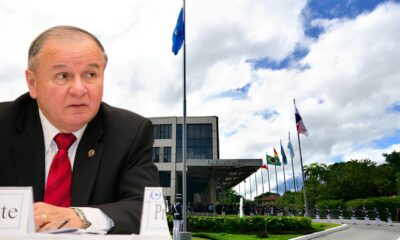
 Politics7 days ago
Politics7 days agoElias Castillo: A Stalwart of Latin American Legislative Leadership
-
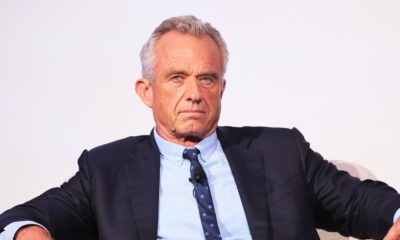
 EU & the World7 days ago
EU & the World7 days agoRobert F. Kennedy Jr. Endorses Donald Trump & Suspends Presidential Race
-

 Sports7 days ago
Sports7 days agoGenoa passes in Monza with Pinamonti
-

 Sports5 days ago
Sports5 days agoBeautiful Juve: Vlahovic and youth rout Verona. Thiago Motta first









